Search
Search Results
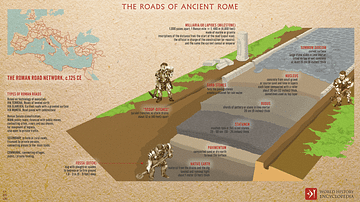
Image
The Roads of Ancient Rome
An infographic illustrating the typical structure of Roman roads. It is believed that the Romans adopted the craft of road construction from the Etruscans, and as the empire grew, they incorporated ideas and techniques from other cultures...

Article
Coal Mining in the British Industrial Revolution
Coal mining boomed during the British Industrial Revolution as it provided fuel for steam engines of all kinds in factories, transport, and agriculture. Draining flooded mines to extract more coal was the reason the steam engine was invented...

Article
The Bombing of Dresden in 1945
The bomber raid on Dresden was a controversial and highly destructive combined operation by Royal Air Force Lancaster bombers and United States Air Force B-17 Flying Fortress bombers on 13, 14, and 15 February and 2 March 1945. The raid was...

Article
Life on a Colonial Sugar Plantation
Raising sugar cane could be a very profitable business, but producing refined sugar was a highly labour-intensive process. For this reason, European colonial settlers in Africa and the Americas used slaves on their plantations, almost all...
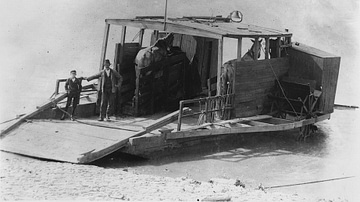
Image
Horse Ferry
An example of a horse-powered ferry. This photo was taken in Chillicothe Ohio in 1900 CE, and is a wooden team boat powered by two horses on treadmills, connected to side paddlewheels.
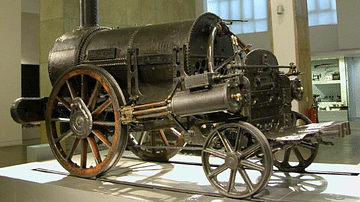
Definition
Stephenson's Rocket
The Rocket was a pioneering steam-powered locomotive invented in 1829 by the British engineer Robert Stephenson (1803-1859). For a cash prize, extensive competition trials were held to find the best locomotive in the Rainhill Trials. Rocket...
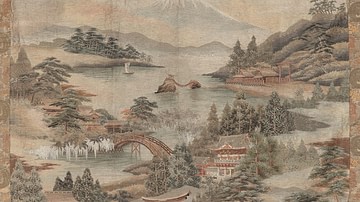
Definition
Meiji Period
The Meiji period refers to the period in Japanese history from 1868 to 1912 during which the Meiji Emperor reigned. Following the overthrow of the Tokugawa shogunate in the Meiji Restoration of 1868, Japan's new leaders embarked on a program...

Definition
John Hawkins
Sir John Hawkins (1532-1595 CE) was an Elizabethan mariner, merchant and naval administrator who has the inglorious (if not wholly accurate) record of being England's first slave trader. In the 1560s CE Hawkins trafficked slaves from West...
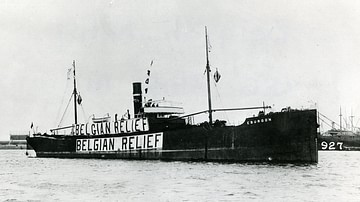
Definition
Commission for Relief in Belgium
The Commission for Relief in Belgium (CRB) was an independent, international organization, sponsored by neutral governments and with the guarantees and assurances of the belligerents to alleviate the suffering of German-occupied Belgium in...

Article
Mesopotamian Inventions
Mesopotamian inventions include many items taken for granted today, most of which were created during the Early Dynastic Period (2900-2334 BCE) or developed from achievements of the Uruk Period (4100-2900 BCE). The Sumerians are credited...